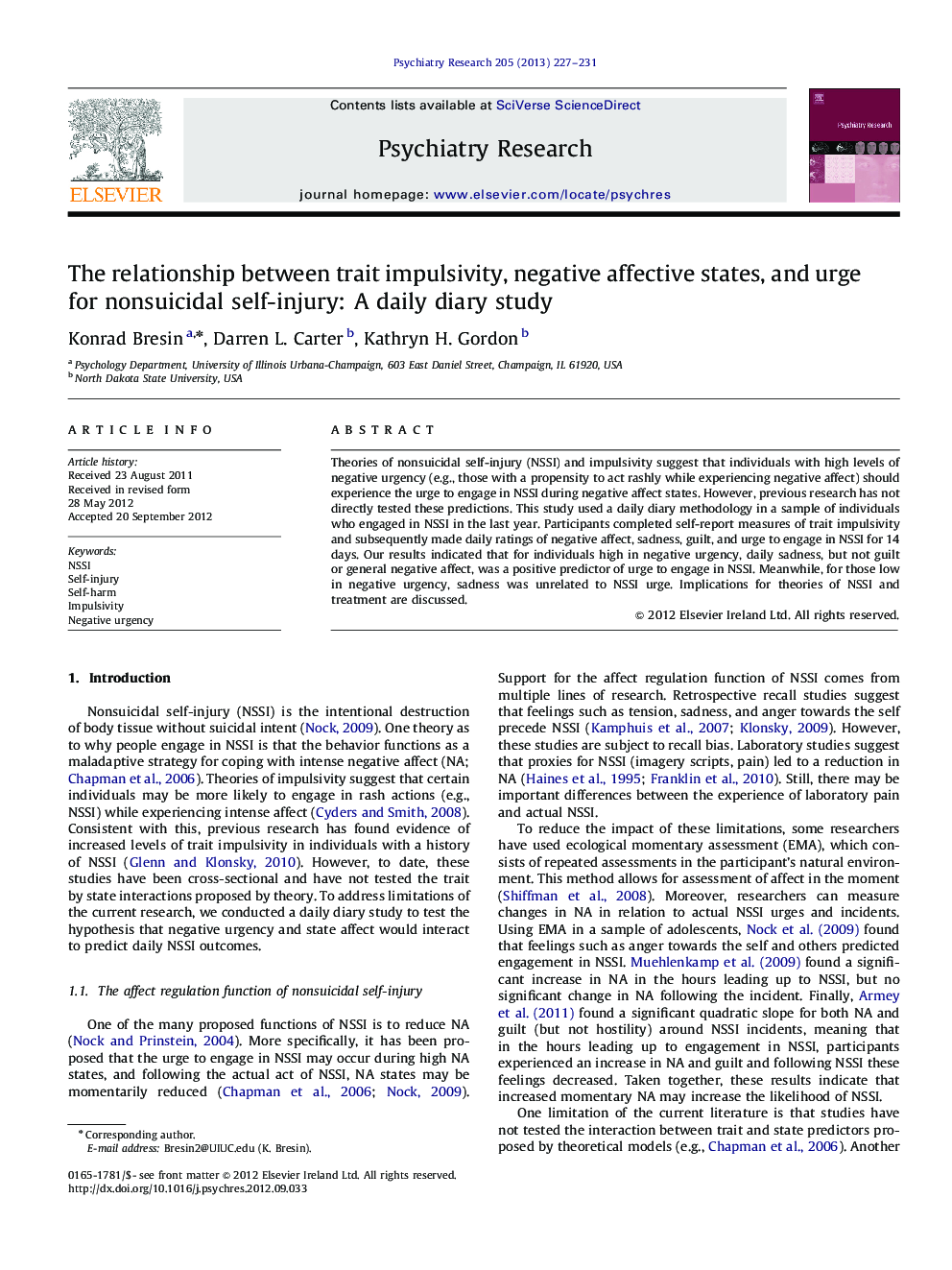| Article ID | Journal | Published Year | Pages | File Type |
|---|---|---|---|---|
| 10304966 | Psychiatry Research | 2013 | 5 Pages |
Abstract
Theories of nonsuicidal self-injury (NSSI) and impulsivity suggest that individuals with high levels of negative urgency (e.g., those with a propensity to act rashly while experiencing negative affect) should experience the urge to engage in NSSI during negative affect states. However, previous research has not directly tested these predictions. This study used a daily diary methodology in a sample of individuals who engaged in NSSI in the last year. Participants completed self-report measures of trait impulsivity and subsequently made daily ratings of negative affect, sadness, guilt, and urge to engage in NSSI for 14 days. Our results indicated that for individuals high in negative urgency, daily sadness, but not guilt or general negative affect, was a positive predictor of urge to engage in NSSI. Meanwhile, for those low in negative urgency, sadness was unrelated to NSSI urge. Implications for theories of NSSI and treatment are discussed.
Related Topics
Life Sciences
Neuroscience
Biological Psychiatry
Authors
Konrad Bresin, Darren L. Carter, Kathryn H. Gordon,
